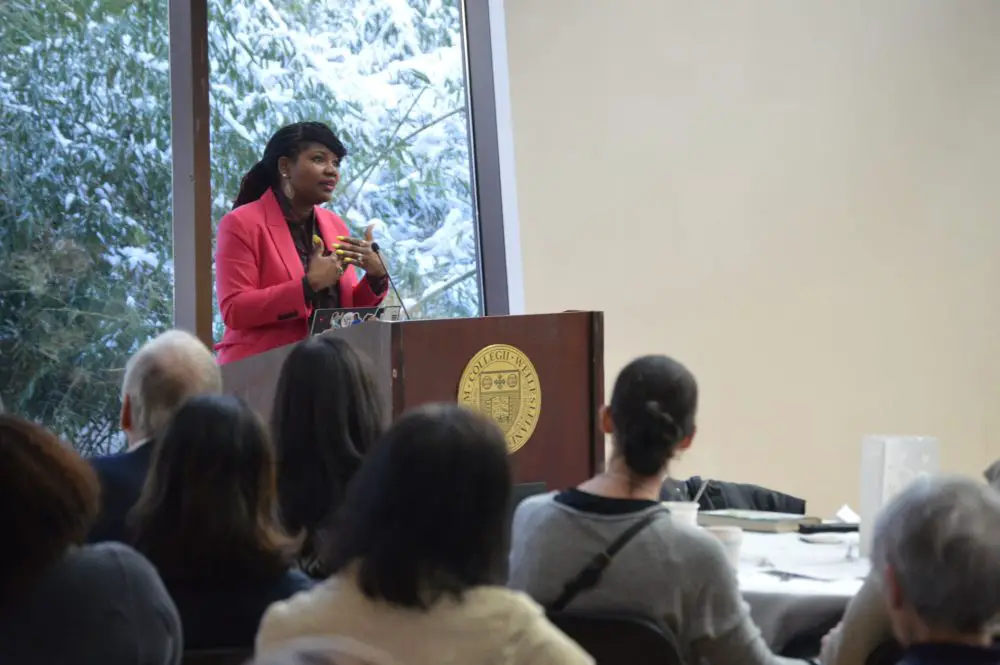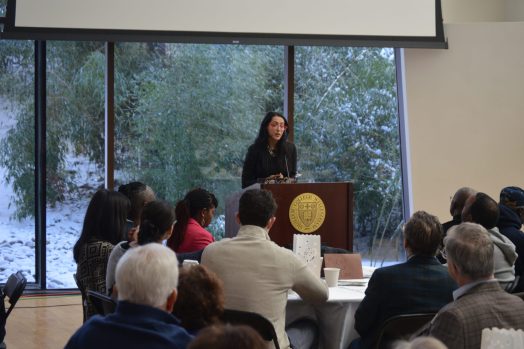Wellesley celebrates Martin Luther King Jr. Day at annual event
More than 150 people gathered at the annual World of Wellesley MLK Day lunch, where Wellesley College’s Dr. Kellie Carter Jackson spoke on Black resistance and attendees discussed related topics at their tables.

Jackson is chair of Chair of Africana Studies at Wellesley College and is the author of the books Force & Freedom: and We Refuse: A Forceful History of Black Resistance, themes from both of which informed her talk, as did her family history (Wellesley Media was on hand and we’ll add their recording to this post when it comes available).
The professor spoke from her home turf, as the event was held at Tishman Commons on the Wellesley College campus, with snow-covered trees and bushes providing a winter wonderland of a backdrop. Attendees included students (now back on campus after winter break) as well as town officials, residents, and visitors.
Jackson spoke of both violent resistance as well as Dr. Martin Luther King, Jr’s leadership in non-violent resistance, though questioned these being seen by some as the only two choices of fighting racism. Black resistance and refusal go beyond Dr. King’s six principles of non-violence, she said, such as addressing reparations (not just monetary, but repairing harm). Activists continue to navigate what’s missing from those principles, she said.
Jackson referenced people continuing to march in the wake of Black people being killed in racist incidents as a form of protest, but she said “marches don’t keep Black people alive… Marches are public mourning, not public policy.”

Black people historically have not sought revenge, but rather justice, Jackson said. The opposite of violence is not non-violence for Black people, she said, but rather “the fullness of Black humanity bound together with joy.”
The fact that the World of Wellesley event took place at the same time and on the same day as the presidential inauguration did not go without notice, as Jackson made references to happenings in Washington, D.C., during her talk.
It didn’t take long during the Q&A session for someone to ask how people whose thoughts and actions are more in line with Dr. King’s than the president should respond to the new administration.
Jackson said her method is writing and speaking, but urged others to be creative in coming up with ways to protect people and bring about the changes they want to see.
Jackson said she tells her students to be activists—not to get arrested, but to “act on what you know.” She encourages them to use the history they have learned and the knowledge they have gained to inform how they vote, where they work, how they treat coworkers, and just chip away at making change at local, state, and national levels.
Following Jackson’s talk, attendees took part in civil discourse with those at their tables on a variety of related topics, including “flight as a form of resistance.”